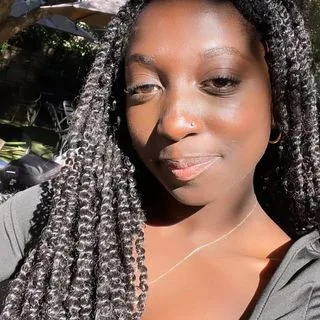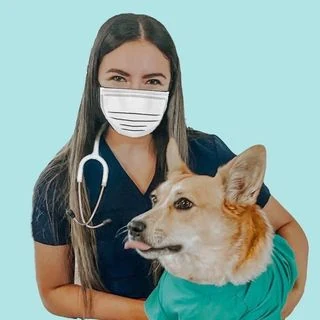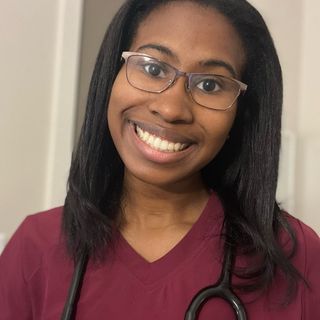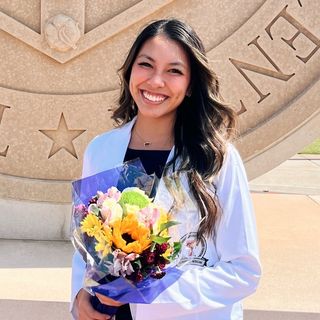
Medical school admissions are competitive. Prospective students have great grades, a high MCAT score, all the prerequisites, and plenty of extracurriculars, and must also ensure their social media presence is presentable.
I’ve heard the same thing so many times during my first consulting call with a pre-med student: “I heard I should delete all my social media before applying. Will that help?”
The answer is more complex than an easy “yes” or “no,” so here are my two pieces of advice:
At a minimum: You can’t have inappropriate posts on your social media. Inappropriate posts may include bigotry towards any group, bashing med schools, excessive profanity, or personal insults such as in a comments section or on an X thread (formerly known as Twitter). In general, you should avoid any content that’s unbecoming of a future physician.
Over half of admissions counselors say that inappropriate use of social media hurts a student’s chances. Premed students may get a rejection because of a couple of old, insensitive posts.
Going the extra mile: You can craft your social media presence to improve your chances of getting into med school. Curating your social media for this purpose may include posting about your extracurricular work, showcasing your professionalism, or emphasizing your most admissions-friendly passions.
About 25% (up from 10% in 2013) of admissions counselors say that an applicant’s social media can increase a student’s chances of acceptance if it’s well-curated.
Here’s how to make social media work in your favor if you want to spend the next several years in medical school.
Our Physician Advisors can help you stand out among medical school applicants. Fewer than half of candidates get accepted — learn how you can be one of them.
Do Med School Admissions Committees Look at Social Media?
Med school admissions committees may look at your social media when considering your application. Not every committee will, but it happens enough that you should prepare accordingly
The primary reason admissions committees look you up is to see if you have inflammatory, bigoted, or otherwise inappropriate posts — which will tank your chances.
But while they’re on your social media, it can only help if you curate your social media profiles to make a fantastic first impression.
I think the biggest myth out there is that you should, by default, delete your social media accounts or put them on private mode before applying to med school. Many of the students I help with for medical school admissions do this because they assume it’s better to not be found.
However, as long as you’re not posting anything offensive, an active presence on social media can actually be a plus. Physicians have a unique place in society as a whole — it can benefit you to show that you’re a trustworthy, engaging person who can carry influence well.
Applicants should operate under the assumption that admissions committees will research candidates online. The information they find can either increase or hinder an applicant’s chances. Wouldn’t you rather it increase your chances?
9 Strategies for All Social Platforms
Later, we’ll cover individual platforms, but now I want to give you the best suggestions for curating your presence on all social media sites.
Not sure whether you’re heading in the right direction? Admissions consulting is what you need. Our seasoned advisors have experience in the med school admission process (including scoping out students’ social media).
We can give you an accurate, insightful breakdown of what will and won’t be helpful concerning your application and social media.
1. Be Yourself
I want to emphasize the value of authenticity. Be yourself. If you’re applying to med school, you probably have a genuine passion for medicine and health. Let that passion shine through.
It’s not about faking it — don’t pretend to be someone you’re not. Just be who you are, and emphasize those parts of you that will look attractive to admissions committees.
2. Update Your Info
This tip seems simple, but how many of us have a different name on TikTok or Instagram from what we go by?
Make sure your social media info is accurate and up to date. Ensure it is not confusing to anyone who finds you (in other words, make sure your name is a part of your profile, if not your handle).
Your social media should communicate the same basic information found on your resume and cover letter in terms of your name, location (if provided), and personal details.
Speaking of which, ensure that the link on your resume to your LinkedIn profile is functional. You would be surprised at how many applicants we encounter with non-working LinkedIn links!
3. Don’t Be Problematic
Whether or not they are aware of it, every person has unconscious biases that can manifest in the things they post online. Ask trusted friends and advisors to take an honest look at your profiles, and ask for feedback about anything that may come across bigoted, insensitive, or problematic.
A few practical ways to address anything that could be an issue:
- Delete old posts you now regret.
- Get a new email address if your current one isn’t professional and contains insensitive or confusing terms.
- Avoid medically outdated language, such as “suffers from” or “commit suicide” or “schizophrenic.”
4. Like and Follow the School
Make sure all your social media accounts like or follow the medical school you’re applying to.
You can even comment on posts, showing you’re invested in the school and engaging with its content.
Read More: Top Medical Schools in US
5. Don’t Give Medical Advice
Medical school admissions committees would be put off by prospective students trying to give medical advice that should only be given by a doctor with an education.
The underlying issue with social media that many doctors hate the most is “Doctor Google” — in other words, non-qualified people sharing medical misinformation online. Your social media content should not perpetuate that problem.
You can discuss current events in the healthcare field, disparities in care, or advances in medical science. However, don’t pretend to be a dietitian or a practicing physician by sharing advice you’re not qualified to give.
6. Corroborate Your Resume and Cover Letter
Post publicly confirming claims you make in your resume and cover letter.
If you mentioned going overseas to help with medical missions, make sure that’s on your Instagram. If you listed interning at a healthcare office, make sure it’s on your LinkedIn.
Make sure volunteering, travel, extracurriculars, and awards are meaningfully showcased on your public profiles.
7. Avoid Alcohol and Drug References
Med school admissions won’t be impressed by all the crazy parties you went to in undergrad. Consider deleting pictures of you drinking or smoking, especially if you were not of age at the time of the postings.
Read More: Easiest Med Schools To Get Into
8. Check Your Privacy Settings
If you’re not developing a public social media presence that you want admissions to see, double-check that all of your privacy settings on all platforms are set to private, not public.
Before submitting your med school application, hide or delete posts that could show you in a bad light — just in case. You never know who has mutual friends, and Friends of Friends can sometimes see social media posts that are set to private.
Also, if you private all your accounts, don’t list those accounts on your application.
9. Respect Your Own Privacy
Even if you keep your profiles public, you have a right to your own privacy.
Obviously, don’t post your driver’s license number, your passwords, your social security number, your credit card number. I would also avoid letting the world know your home address, your minute-by-minute schedule (when you’re not home), or that restaurant you always go to.
Some admissions boards will recognize this as unwise behavior and question your judgment. Even if they don’t make that connection, keep yourself safe and maintain your privacy.
Always sign out of public or shared computers. You don’t want other people to get ahold of your profiles for multiple reasons, including what they might post for admissions counselors to see.
Crafting Your Personal Brand on Individual Platforms
Now, let’s discuss how to best utilize each individual social media platform to its highest potential.
Which social media platforms should I use to increase my chances of getting into medical school? Instagram and LinkedIn are the two social media platforms you should use to increase your chances of getting into medical school. Facebook, YouTube, TikTok, and X (formerly Twitter) are also good platforms to use to your advantage.
LinkedIn for Professional Branding
LinkedIn is where people go to curate their professional brand. Half of all college graduates in the US have a LinkedIn profile while only 10% of American high school-educated people have one. When applying to medical school, this platform is your number one priority.
Here are the best LinkedIn tips when applying to med school:
- Use professional headshots for your profile photo and an interesting background photo.
- Update your personal info, including your job and school history.
- Make sure to customize your LinkedIn URL to match your name. Many students retain the default URL assigned by LinkedIn, which appears unprofessional and does not contribute positively to your personal brand.
- Make your headline eye-catching and impressive (in 220 characters only).
- Optimize your profile by only posting relevant highlights from your professional life.
- Don’t leave out any relevant skills or experience.
- Ensure all your achievements and awards are showcased on your profile.
- Repost content from relevant schools and organizations, adding a little commentary.
- Avoid these overused words in your headline and summary: specialized, leadership, focused, strategic, experienced, passionate, expert, creative, innovative, and certified.
- Consider LinkedIn Premium for advanced features, including the ability to see each profile who has viewed your profile.
- Regularly post content about your journey as a pre-med student (1-2 times per month).
Social networking on LinkedIn can connect aspiring medical students with professionals and medical school admission officers in a unique way compared to other social media.
Instagram for Showcasing Your Passion
Instagram is a popular platform for showcasing your passion primarily through Reels and images. Unique to the Gram, users can see all your posts in 3 columns, easily scrolling through dozens of thumbnails a second. Curate an Instagram that tells a story without needing to read a description.
- Pin 3 posts. You can pin 3 posts to the top of your profile. Pin those pics or Reels that best display who you are and how you want to be portrayed.
- Create a visual medical journey log. When you visit your med school of choice, post it on Instagram. If you travel, post it to Instagram. If you present a research poster at a conference, post it to Instagram.
- Delete any inappropriate old photos that show alcohol or drug use, display non-professional attire, or exhibit any level of insensitivity towards any community.
- Only use relevant hashtags. Over-hashtagging is annoying and unprofessional.
- Keep your captions concise and relevant. Your captions should help describe what the photo or Reel means in a few words or sentences. Avoid overly long captions that could be construed as rants.
- Engage with medical communities and organizations, demonstrating your interest in and dedication to the field.
TikTok for Niche Content
TikTok is a popular platform for many purposes. Here’s what you need to do to a) remove inappropriate content and b) emphasize attractive content:
- Talk about the medical field. Discuss moments in your own journey through pre-med and into med school. Talk about medical news with your followers. Stitch your videos with relevant users’ content. Make it clear you care about this field.
- Don’t delete everything. It’s not necessarily bad to keep all your TikTok dance posts up. Being silly with your friends is totally fine, as long as it’s not insensitive or harmful to others.
- Do delete some things. You should get rid of wild prank content or any video where you talk about politics that you no longer want people to see. Content that reveals a lot of skin may put you in a different light than you want admissions counselors to see, so consider exercising a higher degree of modesty than you normally would.
TikTok, YouTube Shorts, Instagram Reels, and Facebook Reels are all short-form entertainment platforms that make it relatively easier to go viral. You can reuse TikToks across all four of these platforms for greater influence.
Facebook for Personal Experiences
Although some may create a Facebook Page for their professional persona, most people only have a personal Facebook.
- Curate profile pics: All your profile pictures are automatically saved, so make sure they show a natural progression from a young person to a mature adult.
- Include posts and pictures that detail your personal life: This may include times when your family has gotten together, when you’ve gone on trips, when you saw loved ones over the holidays, and when you’ve achieved something in your career.
- Do not include unprofessional posts or pictures: This especially includes you doing anything illegal, such as drinking underage, participating in illegal drug use, sneaking into a building you aren’t allowed in, or driving with your phone in hand.
- Keep posts private that you aren’t comfortable with admissions committee members seeing. Facebook, unlike the other platforms we’ve discussed, allows you to adjust who can see individual posts. You may not want someone from an admissions committee to read a poem inspired by the death of a loved one, but it doesn’t necessarily need to be deleted.
If you make a professional Facebook Page for your public-facing persona, be sure to share how your career is progressing, how people can support you, and what you dream of doing for a living.
X (Twitter) for Sharing Insights
X, formerly known as Twitter, is famous for its hateful comment sections and incessant personal attacks. Remember, not only might med school admissions committees be looking, but there’s also a person on the other end of the X thread.
On the positive side, X is a great place to stay up-to-date on the latest medical news and second-by-second trends. Most journalists operate X accounts. For admission boards searching your old tweets, you want to show you’re insightful without being inflammatory.
Here are the best tips for professionally engaging in discussions and sharing valuable insights on X (Twitter):
- Make sure your profile pic and your banner pic are visually interesting but not inappropriate.
- Use first-person language to make things personal.
- Add images, GIFs, or videos whenever possible.
- Comment on posts relevant to your career.
- Follow pages that are relevant to the medical field.
- Limit shorthand abbreviations like lol, irl, iirc, and lmao.
- Keep your posts short, sweet, and to the point.
- Use no more than 1-2 hashtags per post.
- Monitor trending topics and post about them (if they’re not super divisive).
- Don’t post a bunch right before you apply to school just for the sake of it — this shouldn’t be staged.
YouTube for Educational Content
YouTube is a unique platform. Not exclusively meant as social media, there are many social media aspects to it. Plus, public YouTube videos are just as findable as your other profiles.
Consider making educational YouTube videos (without giving medical advice). Talk to the camera about current events in healthcare or share your journey to medical school with your viewers. Showcase your passion and expertise without offering advice you’re not qualified to give.
Here are a few ideas for YouTube content that may look attractive to med school admissions:
- Discussing the history of anesthesia.
- Reviewing new laws concerning healthcare.
- Detailing the wildest medieval medical practices.
- Differences in healthcare between the US, Canada, and UK.
- Talking about your favorite historical figure in medicine.
- Benefits of participating in a Medical Brigade or other volunteer opportunity.
Make sure you don’t have any cringe-worthy videos from when you were in middle school making dumb, inappropriate jokes. I recommend deleting any videos that make you look immature.
However, if you made weird or chuckle-worthy videos when you were younger, feel free to leave them public. It’s natural to acknowledge you were young — you just don’t want to look like a jerk.
Social Media Influencers To Check Out
It’s helpful to have good examples, so if you’re looking for well-run accounts that belong to pre-meds and med students, these are ones I’d recommend checking out. These creators have mastered the art of posting authentic, popular content while also bolstering their professional image as a future physician. Explore their accounts to learn more about how to use social media responsibly as a prospective doctor!

Licia
A med school student giving a glimpse into the daily life of her studies and training to become a doctor.

White Coats and Corgis
A med student providing content to help students on their journey to medicine, with cameos from her corgi.

Sydney DeVore
A Cornell grad and future physician helping premeds get into medical school.

Sarah
A pre-med student sharing her experiences in clinical research during her gap year, and her study tips for the MCAT.

Megan
A first year medical school student, documenting her path to becoming a physician.
Other Strategies for Med School Admissions
How can I maximize my chances of getting into medical school? You can maximize your chances of getting into medical school by curating your social media presence. Remember to also following these proven strategies:
- Start the application process early, and thoroughly read the application instructions.
- Proofread your application, cover letter, and personal statement more than once.
- Maximize your extracurriculars, especially medically relevant ones.
- Procure relevant letters of recommendation (one from a science professor is a must).
- Emphasize how you add diversity to the field. Are you froman underrepresented or disadvantaged background? Do you have intellectual interests outside science and medicine? Are you a non-traditional applicant?
- Research your school’s website before applying and again before interviewing.
- Keep it concise. This goes for application questions, cover letters, answers during the interview.
- In the interview phase, mix professionalism with warmth and ask your own questions.
- Get 1-on-1 advice from MedSchoolCoach. We’ve worked with thousands of students, and our clients dramatically increase their chances at getting the “yes!” to medical school.
In Conclusion
A strong social media presence is just another area that admissions committees are going to investigate. An offensive or inappropriate profile will hurt your chances. However, if curated responsibly, your social media can be a very strong advertisement for your candidacy.
If you are ready to speak with industry professionals who know what admission committees are looking for, schedule a 15-minute talk with one of our mentors today. Our students double their chances at successfully getting into medical school!

Owen Ezell
Owen is a Digital Marketing Associate at MedSchoolCoach and 99th percentile scorer on the MCAT. Owen excels at propelling brand growth through strategic digital initiatives. His expertise spans influencer campaigns, sales enablement, and SEO, significantly boosting visibility for MedSchoolCoach.






